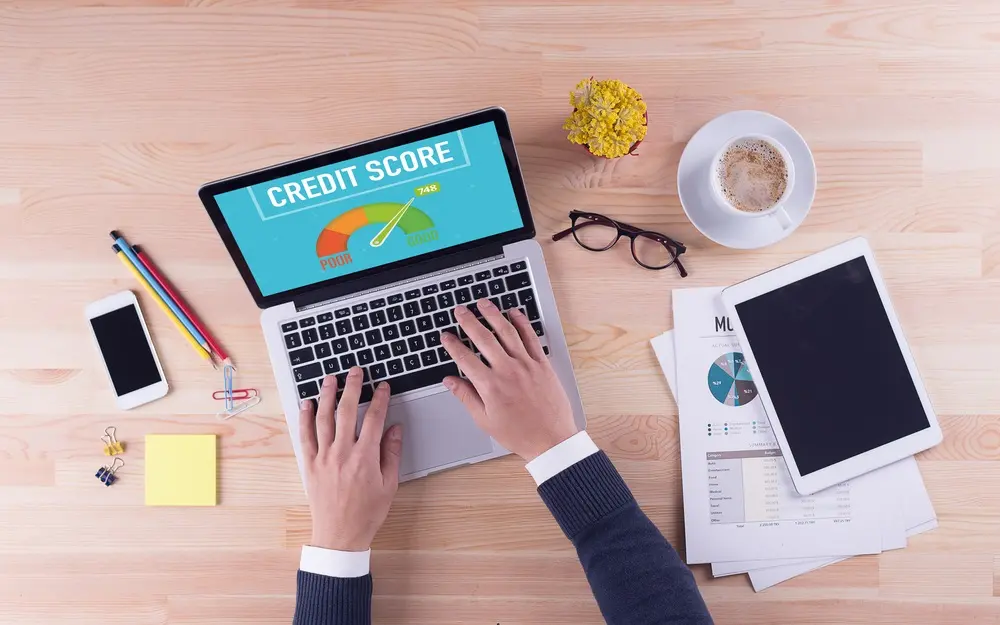
How to Improve Your Credit Score Quickly: Expert Advice
Improving your credit score quickly can open doors to better financial opportunities, from securing lower interest rates on loans to qualifying for premium credit cards.
A strong credit score reflects your financial reliability and can save you thousands over time. This article offers expert-backed strategies to quickly boost your credit score.
Trending Now!!:
What Is a Credit Score and Why Does It Matter?
Your credit score is a three-digit number, typically ranging from 300 to 850, that lenders use to evaluate your creditworthiness.
Scores are calculated by credit bureaus, such as Equifax, Experian, and TransUnion, based on factors including payment history, credit utilization, length of credit history, types of credit, and recent inquiries.
A higher score indicates a lower risk to lenders, making it easier to secure loans, mortgages, or credit cards with more favorable terms. A good credit score (generally 670–739, according to FICO) or an excellent credit score (740–850) can unlock benefits like lower interest rates and better loan terms.
If your score is below this range, don’t worry—there are actionable steps to improve your credit score fast.
Top Strategies to Boost Your Credit Score Quickly
Here are expert-recommended ways to improve your credit score quickly:
1. Pay Your Bills on Time
Payment history accounts for 35% of your FICO score, making it the most significant factor in determining your credit score. Late payments can stay on your credit report for seven years, dragging your score down. To boost your credit score quickly:
- Set up autopay: Ensure bills are paid on time by automating payments for credit cards, utilities, and loans.
- Catch up on missed payments: Contact creditors to negotiate payment plans or request goodwill adjustments for minor late payments.
- Use reminders: Set calendar alerts or use budgeting apps to track due dates.
Pro Tip: Even one on-time payment can start improving your score, as recent activity carries significant weight.
2. Reduce Credit Utilization Ratio
Your credit utilization ratio—the percentage of available credit you’re using—makes up 30% of your score. Maintaining a ratio below 30% is ideal for improving your credit score.
For example, if you have a $10,000 credit limit, aim to keep your balance below $3,000.
- Pay down balances: Focus on high-interest cards or those with the highest utilization.
- Request a credit limit increase: A higher limit lowers your utilization ratio, as long as you don’t increase spending.
- Use multiple payments: Make several payments throughout the month to keep balances low.
Example: Paying off a $2,000 balance on a card with a $5,000 limit can reduce your utilization from 40% to 0%, potentially boosting your score within weeks.
3. Dispute Errors on Your Credit Report
Errors on your credit report, such as incorrect late payments or accounts that don’t belong to you, can lower your score. According to a 2021 FTC study, 25% of consumers found errors on their credit reports.
- Check your credit report: Get free reports from AnnualCreditReport.com from all three bureaus.
- File disputes: Submit disputes online or via mail with supporting documentation to correct inaccuracies.
- Monitor progress: Follow up to ensure errors are removed, which can lead to a quick score increase.
Pro Tip: Use services like Experian Boost to add positive payment history (e.g., utility or phone bills) to your report for a potential credit score boost.
4. Avoid New Hard Inquiries
Applying for multiple credit cards or loans in a short period triggers hard inquiries, which can temporarily lower your score.
Each inquiry can deduct up to 5–10 points, and the impact remains on your report for two years.
- Limit applications: Only apply for credit when necessary, and shop for loans within a 14–45-day window to minimize inquiry impact.
- Prequalify first: Use prequalification tools to check eligibility without affecting your score.
5. Become an Authorized User
If you have a trusted friend or family member with a strong credit history, ask to be added as an authorized user on their credit card. Their positive payment history and low utilization can positively impact your credit report, helping you quickly improve your credit score.
- Choose wisely: Ensure the primary cardholder has a solid payment history and low balances.
- Confirm reporting: Verify with the card issuer that authorized user activity is reported to credit bureaus.
6. Pay Off Small Debts in Collections
Unpaid debts in collections can severely damage your score. Paying off or settling these accounts can help, especially for smaller amounts.
- Negotiate settlements: Offer to pay a portion of the debt in exchange for deletion from your report (known as “pay for delete”).
- Prioritize recent debts: Newer collections have a greater impact on your score.
Note: Starting in 2023, some bureaus no longer include medical collections under $500 on credit reports, which could automatically improve your score.
7. Diversify Your Credit Mix
A mix of credit types (e.g., credit cards, auto loans, mortgages) can positively affect your score, as it shows you can manage different types of credit. This accounts for 10% of your FICO score.
- Consider a secured card: If you’re rebuilding credit, a secured credit card can diversify your portfolio while keeping risk low.
- Avoid overextending: Only take on new credit if you can manage it responsibly.
How Long Does It Take to Improve Your Credit Score?
The time to boost your credit score depends on the issue and your actions:
- Payment history improvements: On-time payments can show results in 30–60 days.
- Lowering utilization: Paying down balances can reflect in your score within one billing cycle.
- Error disputes: Corrected errors may take 30–90 days to update.
- Collections or inquiries: These may take months to lessen in impact, but proactive steps can mitigate damage.
For significant improvements, aim for consistent habits over a period of 3–6 months. For example, reducing credit utilization from 80% to 20% could raise your score by 50–100 points, depending on other factors.
Tools and Resources for Credit Score Improvement
- Free Credit Monitoring: Apps like Credit Karma or Experian offer real-time score tracking and credit repair tips.
- Budgeting Apps: Tools like YNAB (You Need a Budget) help manage spending to keep utilization low.
- Credit Counseling: Nonprofit agencies, such as the National Foundation for Credit Counseling (NFCC), provide free or low-cost advice for credit repair.
- Experian Boost: Add positive payment history for utilities, rent, or streaming services to your report.
Common Mistakes to Avoid
- Closing old accounts: This can shorten your credit history and increase utilization, hurting your score.
- Ignoring small balances: Even minor unpaid debts can lead to collections.
- Applying for too much credit: Multiple inquiries signal risk to lenders.
Conclusion
Improving your credit score quickly is achievable with discipline and the right strategies. By paying bills on time, reducing credit utilization, disputing errors, and avoiding unnecessary inquiries, you can boost your credit score in as little as 30–60 days.
For long-term success, maintain healthy financial habits and regularly monitor your progress.
Start today by checking your free credit report, setting up autopay, and tackling high balances. With these credit score tips, you’ll be on your way to a stronger financial future.



